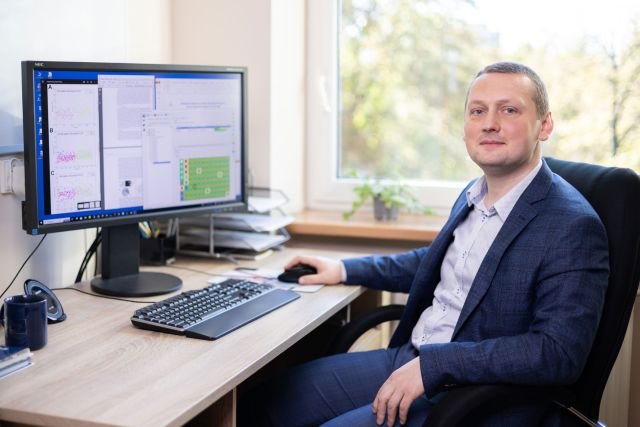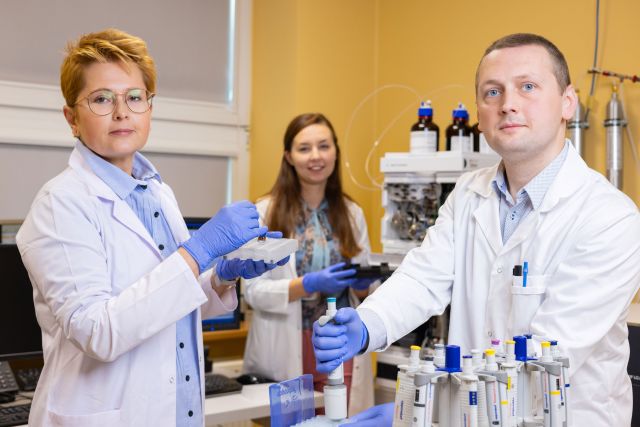Principal Investigator
:
Dr Karol Andrzej Jelonek
Maria Sklodowska-Curie National Research Institute of Oncology in Gliwice
Panel: NZ7
Funding scheme
: GRIEG
announced on
17 June 2019
Every year, over 2 million women around the world develop breast cancer, which is the cause of death in a third of them. Since the most important cause of the high mortality rate of this cancer is late diagnosis, screening tests have been introduced in many countries based primarily on imaging methods that have several weaknesses regarding diagnostic precision. Thus, new methods are being sought to enable reliable detection of changes occurring in the body at the earliest possible stage of cancer development. The source of potential breast cancer biomarkers are components of body fluids, including a diverse group of metabolites. The composition and concentration of these small molecules present in the blood integrate information about all biological processes, thus reflecting the current state of the body.
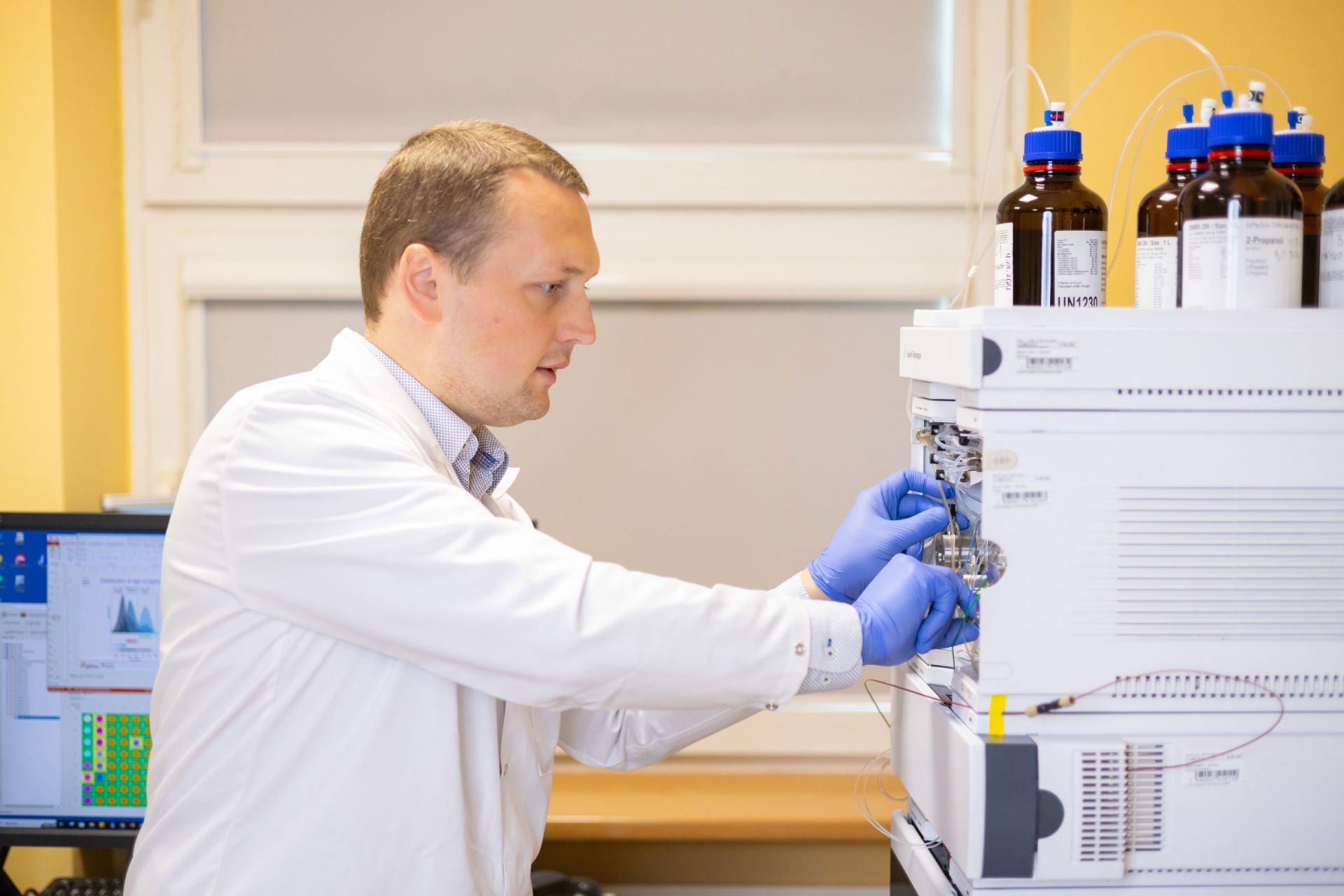 Dr Karol Andrzej Jelonek, photo by Michał Łepecki
The subject of this Project was to characterise the metabolic profile of blood serum in women at increased risk of breast cancer and the signature specific to patients diagnosed with breast cancer. The analyses used material collected from healthy participants of the Norwegian population-based study conducted in 1995-1997 in the Trøndelag region (HUNT2 study), some of whom were diagnosed with cancer during the 15-year observation period, and samples of women with cancer and healthy volunteers from the collection of the Center for Translational Research and Molecular Biology of Cancer. The serum metabolite profile was quantitatively analysed by mass spectrometry using the commercial Absolute IDQ p400 HR kit, which allows for the detection of over 400 metabolites and isomeric groups of lipids.
Dr Karol Andrzej Jelonek, photo by Michał Łepecki
The subject of this Project was to characterise the metabolic profile of blood serum in women at increased risk of breast cancer and the signature specific to patients diagnosed with breast cancer. The analyses used material collected from healthy participants of the Norwegian population-based study conducted in 1995-1997 in the Trøndelag region (HUNT2 study), some of whom were diagnosed with cancer during the 15-year observation period, and samples of women with cancer and healthy volunteers from the collection of the Center for Translational Research and Molecular Biology of Cancer. The serum metabolite profile was quantitatively analysed by mass spectrometry using the commercial Absolute IDQ p400 HR kit, which allows for the detection of over 400 metabolites and isomeric groups of lipids.
As a result of the study, several interesting results were obtained. It was noticed that the age of donors is an important factor in changing the concentration of metabolites, therefore research should be conducted on groups with a small age range, ensuring a similar age structure of the compared groups. It was found that reduced serum lipid and amino acid concentrations are associated with an increased risk of breast cancer in a group of healthy women. Unfortunately, the lack of a universal pattern of changes (common to different age groups) and the low statistical power of the differences did not permit the proposal of a metabolic risk signature. It has been shown that reduced levels of most amino acids (except Arg and Gln), ceramides, glycerides, and lysophosphatidylcholines, as well as increased concentrations of hexoses and acylcarnitines are characteristic features of the serum metabolome of breast cancer patients. Additionally, it was found that the set of metabolites that distinguished healthy people from breast cancer patients included molecules that were part of the hypothetical universal cancer signature characteristic of many solid tumours.
Read more on SEMPRA Project website.
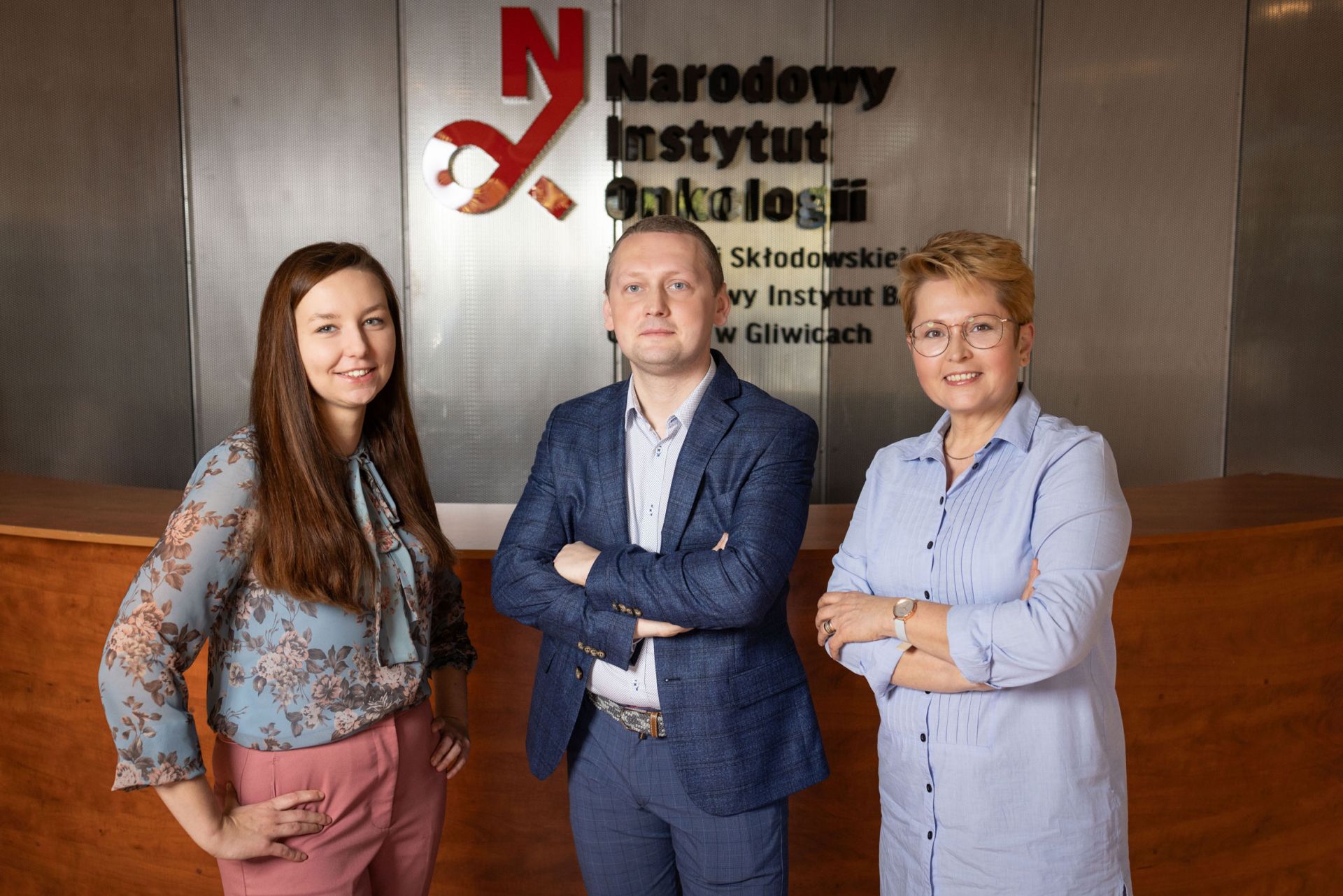 Dr Karol Andrzej Jelonek with his team: Katarzyna Morowiec (on the left) and Lucyna Ponge (on the right), photo by Michał Łepecki
Dr Karol Andrzej Jelonek with his team: Katarzyna Morowiec (on the left) and Lucyna Ponge (on the right), photo by Michał Łepecki
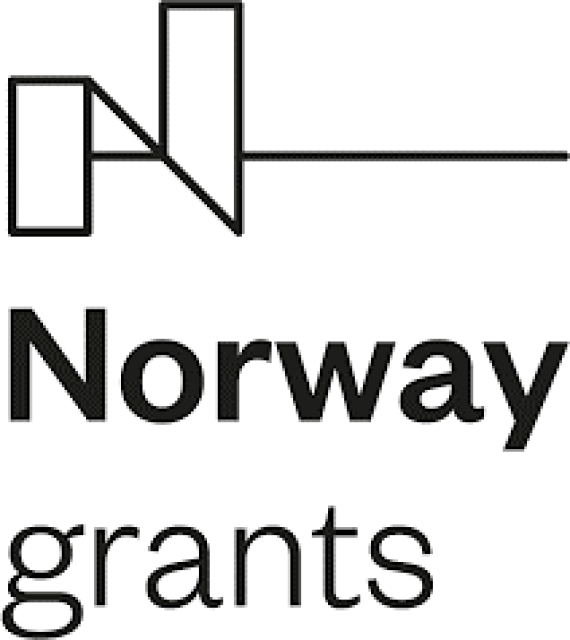
Project title: Serum metabolome profiling in breast cancer risk assessment
Dr Karol Andrzej Jelonek
Dr Karol Andrzej Jelonek obtained a master's degree in technology and chemical engineering at the Faculty of Chemistry of the Silesian University of Technology in Gliwice in 2007 and a master's degree in radiobiology at the Faculty of Oncology of University College London in the United Kingdom in 2008. In 2011, he obtained a doctorate in medical sciences at the Oncology Centre – Institute in Gliwice. In 2012, he completed a three-month research internship focused on the biomedical use of mass spectrometry techniques at the Biomedical Scientific Centre, Sheffield Hallam University in the United Kingdom. Since 2018, he has been working as an assistant professor at the National Institute of Oncology in Gliwice. His current research interests include the impact of radiotherapy on changes in the profile of metabolites and proteins in the blood of cancer patients and the search for new metabolomic tumour markers.
